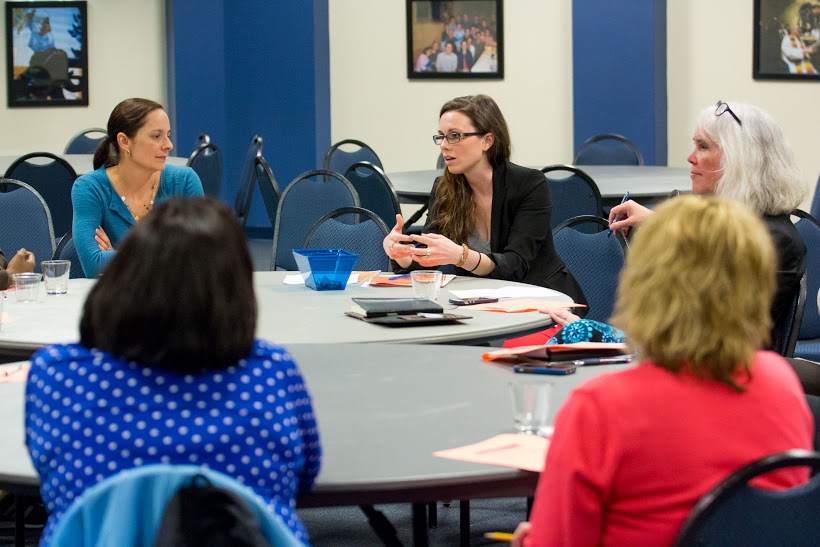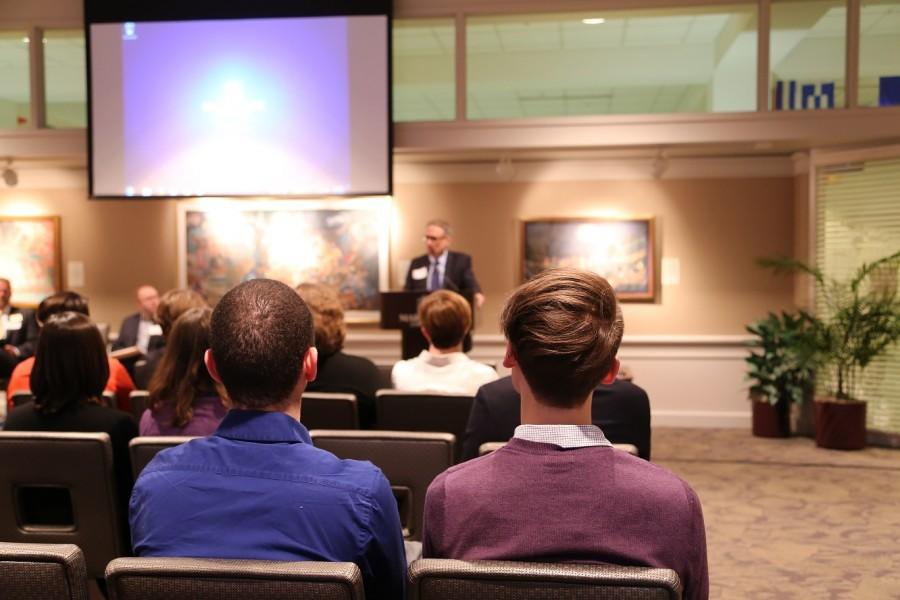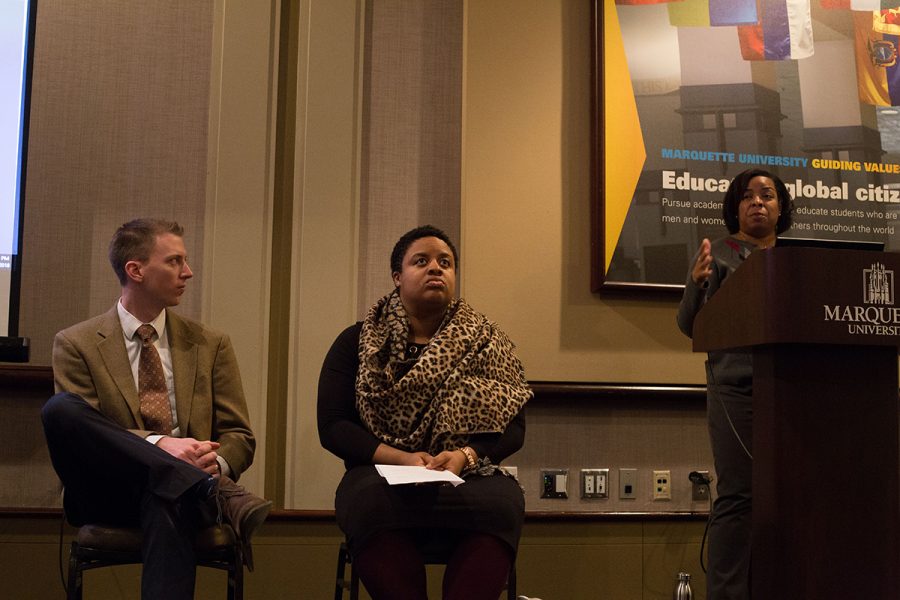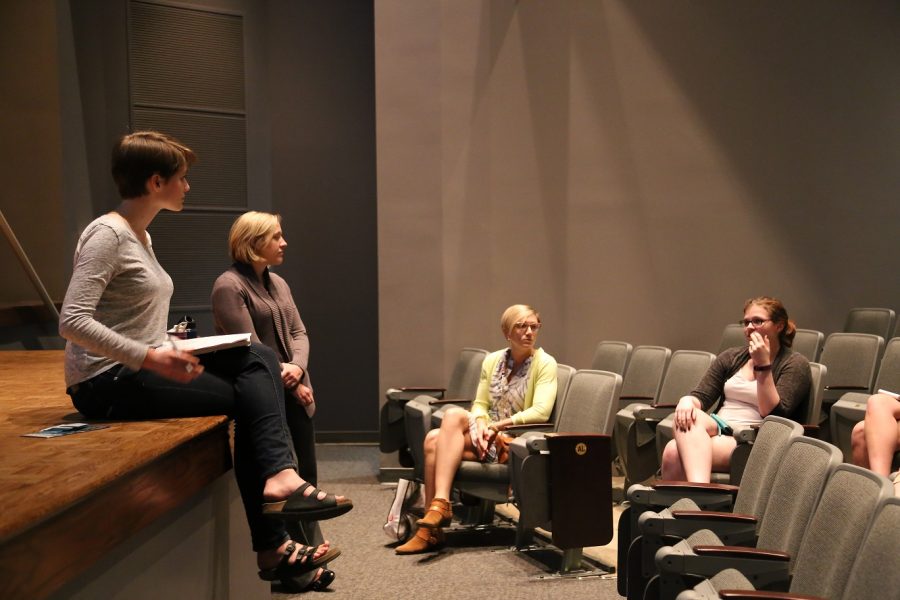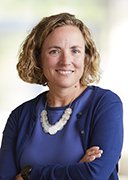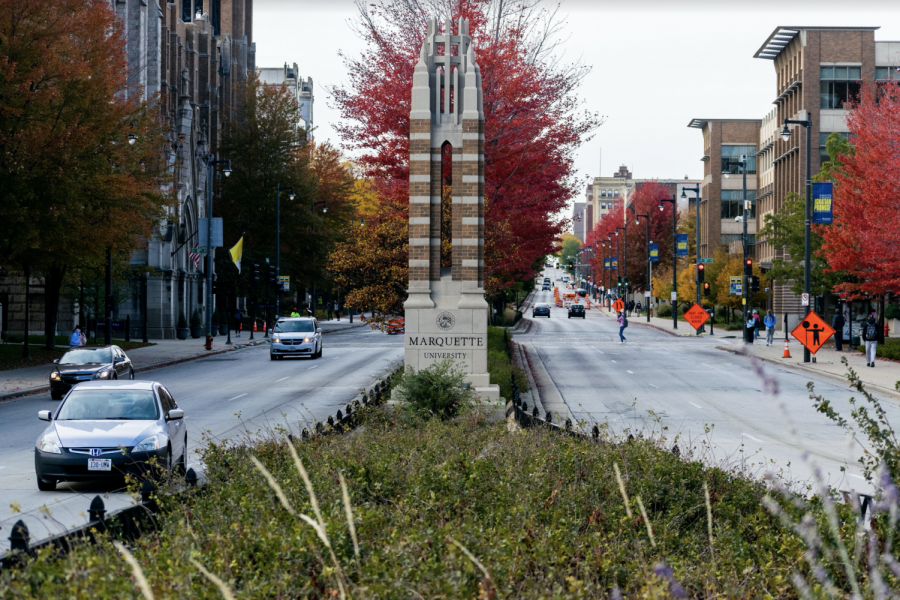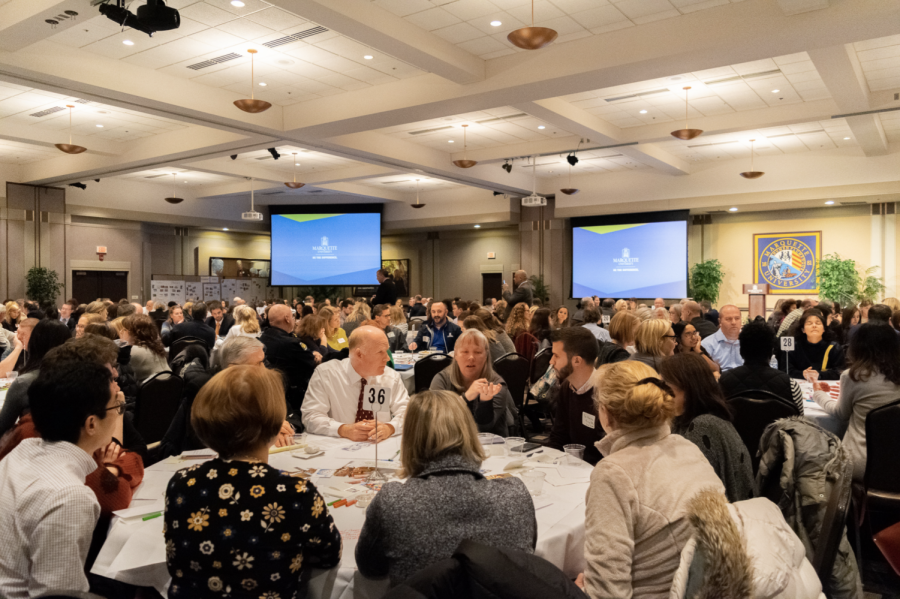The Women’s Innovation Network is working at Marquette to connect faculty, staff, students and alumni to create a more inclusive innovation environment.
The Office of Research and Innovation organized informal meetings to help people learn more about WIN. Eleven women attended the meeting to help create ideas. They discussed improvements to university innovation, programs they could implement and the possibility of creating an innovation committee.
“We started to ask the question of what we could do if we created a larger network,” said Jeanne Hossenlopp, vice president for research and innovation. “We really started to pay attention to participation and innovation at Marquette.”
The women who attended were interested in creating a more inclusive environment for female faculty, staff and students through different programs.
Angelique Harris, an associate professor in the College of Arts & Sciences, director of the Center for Gender and Sexualities Studies and director of the women’s and gender studies major attended the meetings.
“I want to work to see how the Center (for Gender and Sexualities Studies) can be there to help students with their work,” Harris said. “I’m particularly interested in ways to enhance curriculum.”
Lisa Edwards, an associate professor in the College of Education was also in attendance.
“I’m interested in everything culture and women related, so I was very interested in learning more about WIN,” Edwards said.
The goal of WIN and the brainstorming session was to connect women and create ways that they could engage the Marquette community. They were interested in funding for research and creating more programs to promote inclusiveness.
“We’ve looked at the number of women who reached rank of professor at Marquette. We’ve looked at the number of women who disclose inventions through our tech transfer program,” Hossenlopp said. “We’ve seen some lack in those areas. We know we have room for growth.”
WIN is still in development, and the faculty hopes to see the initiative succeed at Marquette to progress diversity and inclusion.
“We created this idea of a network we were going to call WIN to address the questions about women’s participation but also the larger questions of a more global sense of what we’re doing as an inclusive network,” Hossenlopp said.
The question was raised about how inclusive programs are working at Marquette and how WIN could work with those programs.
“In terms of what’s working is the women’s spirituality luncheons,” Harris said. “I feel that’s the largest group as a women-centered thing.”
The university hosts women’s spirituality luncheons periodically for female faculty and staff providing lunch, discussion and meditation.
“There was a donor who felt it’s important that Marquette is a Jesuit institution that educates women and men together,” Hossenlopp said.
Marquette was the first Catholic university to educate men and women together.

